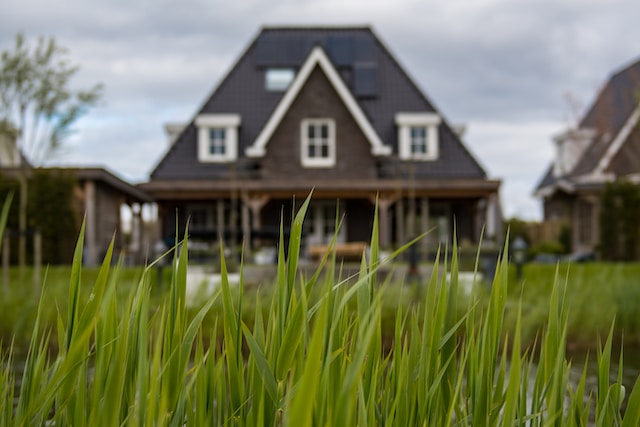Landlord Blog
Education and news for smart DIY landlords!
How to Afford Your First Home

Buying your first home is an exciting and significant milestone in life. However, it can also be a daunting endeavor, especially when it comes to the financial aspect.
Affording a home requires careful planning, budgeting, and smart financial decisions. If you're wondering how to make your dream of owning a home a reality, here are some essential tips to help you navigate the process!
Determine Your Budget
The first step in affording your first home is to establish a realistic budget. Consider your income, expenses, and financial goals to determine how much you can afford to spend on a home. A general guideline is that your monthly housing costs, including mortgage, taxes, and insurance, should not exceed 25-30% of your gross monthly income. Use online mortgage calculators to estimate your monthly payments and determine a comfortable budget range.
Save for a Down Payment
Saving for a down payment is one of the most critical aspects of affording your first home. Aim to save at least 20% of the home's purchase price, as it allows you to avoid private mortgage insurance (PMI) and potentially secure better loan terms.
Create a dedicated savings plan, cut down on unnecessary expenses, and consider additional sources of income to boost your savings. Look into first-time homebuyer programs or government-assisted programs that provide down payment assistance to eligible individuals.
Improve Your Credit Score
A good credit score is essential for securing favorable mortgage terms and interest rates. Take steps to improve your credit score by paying bills on time, reducing credit card debt, and maintaining a low credit utilization ratio. Review your credit report regularly and correct any errors that may negatively impact your score. A higher credit score can save you thousands of dollars over the life of your mortgage.
Explore Loan Options and Shop Around
Research different loan options and mortgage lenders to find the best fit for your financial situation. Compare interest rates, loan terms, and closing costs from various lenders to ensure you're getting the most favorable deal. Consider working with a mortgage broker who can assist you in finding competitive loan options. Don't forget to factor in additional costs like property taxes, homeowners insurance, and maintenance expenses when assessing affordability.
Consider Starter Homes or Fixer-Uppers
If your budget is limited, consider looking for starter homes or fixer-uppers. These properties may require some renovations or repairs, but they often come with a lower price tag. Look for potential in properties that can be improved over time, allowing you to build equity and upgrade as your financial situation improves.
Read more: The Biggest Mistakes Many First Time Homebuyers Make (And What To Do Instead)
Explore Assistance Programs
Research government programs, grants, or subsidies that may be available to first-time homebuyers. Many local, state, and federal programs offer financial assistance, tax credits, or reduced interest rates for eligible individuals. These programs can significantly ease the financial burden of purchasing your first home.
Plan for Closing Costs and Moving Expenses
In addition to the down payment, it's crucial to budget for closing costs and moving expenses. Closing costs typically range from 2-5% of the home's purchase price and include fees for appraisal, inspection, attorney fees, and title insurance. Create a savings plan specifically for these costs to avoid any last-minute financial strain.
Be Patient and Flexible
Affording your first home may take time and require flexibility. Be patient during the home search process and don't rush into a decision that doesn't align with your budget or long-term goals. Consider exploring different neighborhoods or expanding your search to find more affordable options.
Remember that owning a home is a long-term commitment, so it's crucial to make a decision that is financially sustainable for your circumstances. Learn more about homeownership topics by checking out the posts below:
